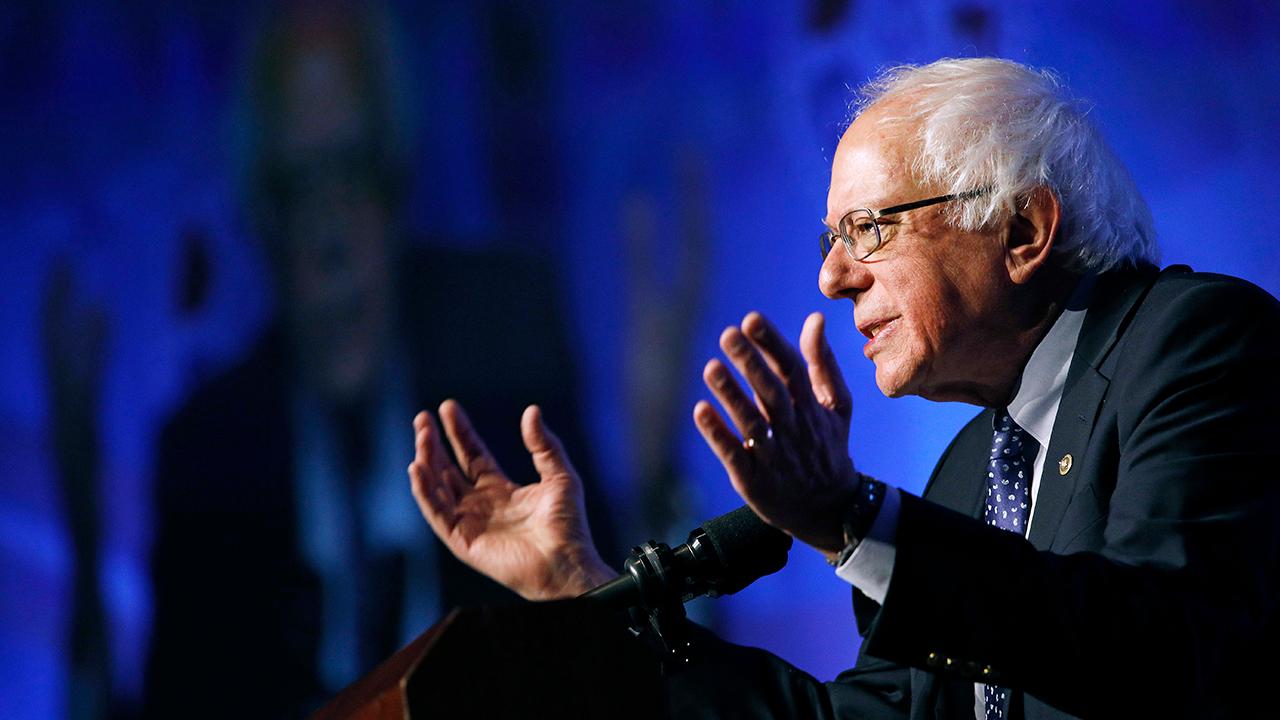Bernie Sanders plans tax on Wall Street speculation
Independent Vermont Sen. Bernie Sanders – a 2020 presidential candidate – introduced a tax on Wall Street on Wednesday, which aims to stem speculation by targeting trades of stocks, bonds and derivatives.
"The middle class bailed out Wall Street in 2008, now it is Wall Street's turn to help rebuild the middle class," Sanders said during a press conference on Wednesday.
Sanders mentioned the tax during a Town Hall with Fox News last month. Rep. Barbara Lee, D-Calif., is a co-sponsor on the bill.
Sanders has introduced a version of what he is calling the “Inclusive Prosperity Act,” in prior years.
The bill calls for a tax of 0.5 percent for stocks, 0.1 percent for bonds and 0.005 percent for derivatives. A $1,000 stock trade would be taxed $5, while a $1,000 trade in derivatives would be taxed $0.05.
Sanders has deemed it a “speculation tax” because it is designed to discourage speculation within the market, meaning it is not aimed at middle-class investors who tend to leave their money in the market to grow over longer periods of time. Instead, it aims to curb short-term activity among high-frequency traders, which can have destabilizing effects on the market. In May 2010, for example, a so-called “flash crash”— said to be partially caused by selling among high-frequency traders – wiped out billions of dollars from stocks before prices recovered not long after.
By some estimates, the tax would raise $600 billion over the course of a decade. Sanders estimated the measure could raise as much as $2.4 trillion, which he said could be used to make college tuition-free, reduce student debt and repair the nation's infrastructure.
Meanwhile, earlier this year House Democrats, including New York Rep. Alexandria Ocasio-Cortez, introduced financial transaction tax legislation called the Wall Street Tax Act of 2019. The tax would be about 0.1 percent of the value of the security being traded, or 0.1 percent of all payments made under the terms of a derivative contract.
According to estimates provided by the Joint Committee on Taxation (JCT), this measure would increase revenues by about $777 billion between 2019 and 2028. The JCT listed a number of downsides, however, including discouraging activity that stabilizes asset and stock prices, reducing liquidity, and ultimately even possibly reducing household wealth and consumption.
CLICK HERE TO GET THE FOX BUSINESS APP
As taxing the wealthy becomes a rallying point for progressive Democrats, Sanders has also advocated for a wealth tax of 52 percent. He recently introduced legislation to expand the estate tax rate to 77 percent for those passing on assets valued at more than $1 billion.




















